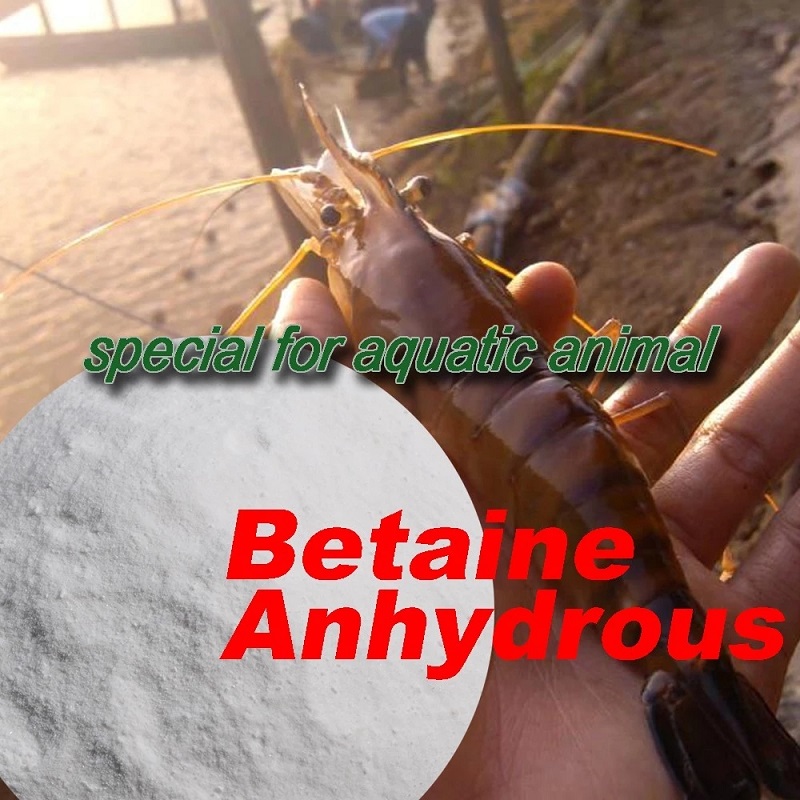EFFECTS OF BETAINE IN SHRIMP FEED
Betaine is a kind of non-nutritional additive, it is the most like eating plants and animals according to aquatic animals, the chemical content of synthetic or extracted substances, attractant often consisting of two or more compounds, these compounds have synergy to aquatic animal feeding, through the smell and taste of aquatic animals and visual stimulus, such as the gathered around to feed, Speed up food intake and increase feed intake.

Adding betaine to shrimp diet can shorten 1/3 to 1/2 feeding time and increase feed intake of macrobrachium rosenbergii. The feed containing betaine had obvious bait effect on carps and wild scaly anteater, but had no obvious bait effect on grass carps. Betaine can also enhance the taste sensation of other amino acids to fish, and enhance the effect of amino acids. Betaine can increase appetite, enhance disease resistance and immunity, and compensate for the decrease of fish and shrimp food intake under stress.
Choline is an essential nutrient for animals. It provides methyl groups in the body to participate in metabolic reactions. In recent years, studies have found that betaine can also provide methyl groups for the body, and the efficiency of betaine providing methyl groups is 2.3 times that of choline chloride, making it a more effective methyl donor. After 150 days, the average body length of macrobrachium rosenbergii was increased by 27.63% and the feed conversion ratio was decreased by 8% when betaine was substituted for choline chloride. Betaine can improve the oxidation of fatty acids in cells, mitochondria, and significantly improve muscle and liver of long chain ester acyl carnitine content and long chain ester acyl carnitine and the proportion of free carnitine, promote adipose decompose, reduce liver and body fat deposition, promote protein synthesis, redistribute body fat, reduce the incidence of fatty liver.
